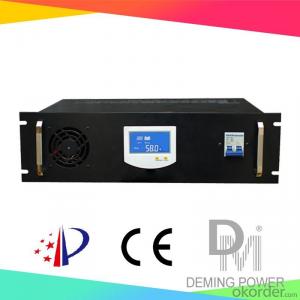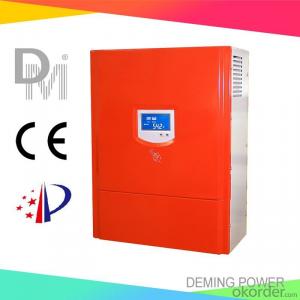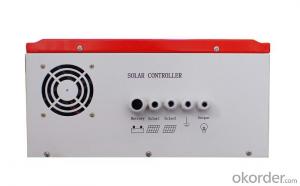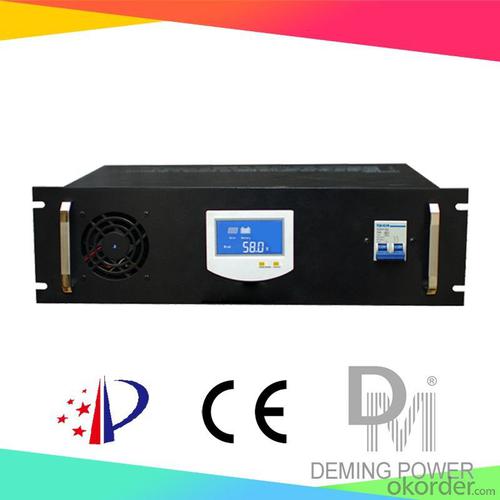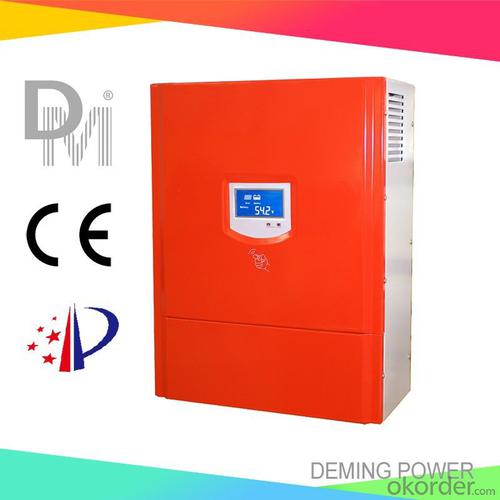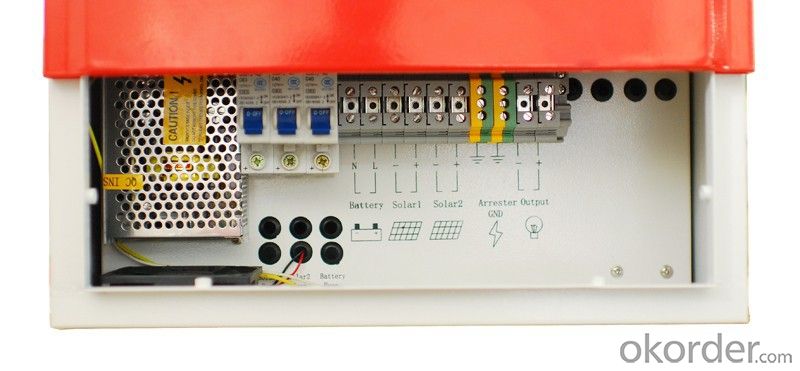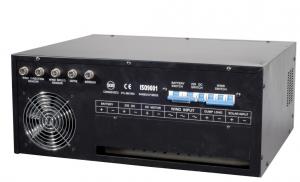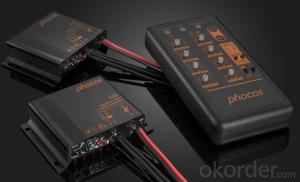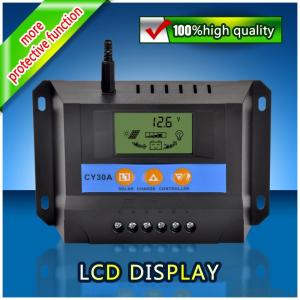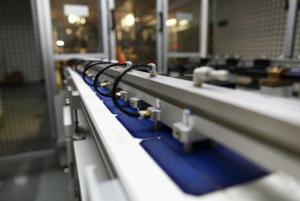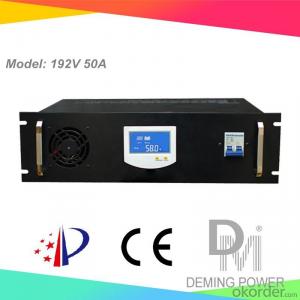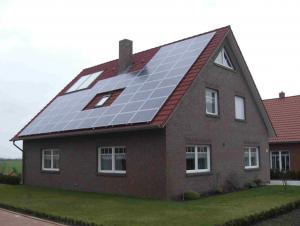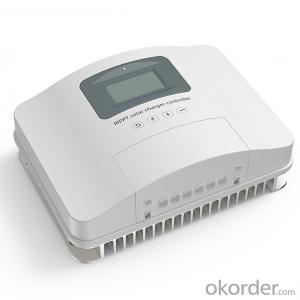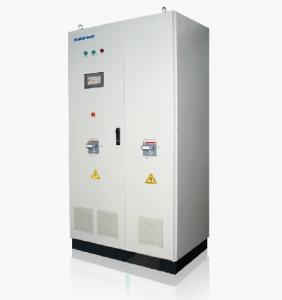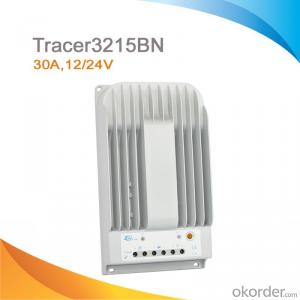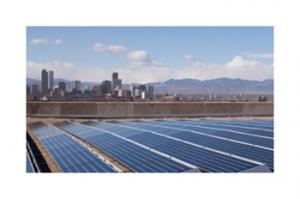Best Solar Charge Controllers:220V 30A/50A/60A/80A for Off-Grid Solar Power Systems with RS485
- Loading Port:
- Qingdao
- Payment Terms:
- TT OR LC
- Min Order Qty:
- 1 PCS
- Supply Capability:
- 1000 PCS/month
OKorder Service Pledge
OKorder Financial Service
You Might Also Like
Properties of the solar charge controller
1. Design for off-grid solar power system.
2. Applicable to different kinds of batteries.
3. Modular design with simple structure and easy maintenance.
4. Automatic power control function.
5. LCD display: Solar panel current, solar panel voltage, solar panel power, battery group voltage, charge current.
6. Perfect protection function: Solar reverse charge protection, Solar reverse connection protection, Battery reverse connection protection, Battery overcharge protection, Battery over current protection etc ,thus the system has higher reliability.
Technical parameters of the solar charge controller
Model | 220V30A | 220V50A | 220V60A | 220V80A |
Battery group rated voltage | 220Vdc | 220Vdc | 220Vdc | 220Vdc |
PV open circuit voltage | 500V | 500V | 500V | 500V |
PV Rated current | 30A | 50A | 60A | 80A |
PV Max. power | 6600Wp | 11000Wp | 13200Wp | 17600Wp |
Input PV module road number | 1 | 1 | 1 | 1 |
Function | Auto stop charge, auto recharge voltage; Protection: connecting contrary, over current, short circuit, over heat etc. | |||
Display mode | LCD | |||
Display content | solar panel voltage, solar panel current, solar panel power, battery voltage, charge current | |||
Floating Charge Voltage (adjustable) | 248Vdc | 248Vdc | 248Vdc | 248Vdc |
Stop charge voltage | 260Vdc±1% | 260Vdc±1% | 260Vdc±1% | 260Vdc±1% |
Recharge voltage | 243Vdc±1% | 243Vdc±1% | 243Vdc±1% | 243Vdc±1% |
Voltage drop between PV and battery | 1.5V | |||
Max itself power consumption | 100mA-150mA | |||
Work environment temperature | -30-60°C | |||
Relative humidity | <90% No condensation | |||
Applicable altitude | <3000m The rated power should be reduced when it is higher than 2000m | |||
Noise (1m) | <40dB | |||
Degree of protection | IP20(Indoor) | |||
Cooling method | Forced air cooling | |||
*Communication interface (optional) | RS485/USB/GPRS/Ethernet | |||
*Temperature compensation(optional) | -4mv/°C/2V,-35°C~+80°C,Accuracy:±1°C | |||
Product size (mm) | 520*430*200 | |||
Weight | 12Kg | |||
*Above parameter only for reference. Could be custom made to user specifications.
- Q: Can a solar controller be used with solar-powered gates?
- Solar-powered gates can indeed utilize a solar controller. This component plays a vital role within a solar power system by effectively regulating the electrical flow from the solar panels to the gates. Its primary function is to ensure the efficient utilization and storage of energy generated by the panels, which in turn powers the gates. Moreover, the solar controller takes charge of managing the charging process and safeguarding the batteries against excessive charging or discharging, thereby extending their lifespan. Consequently, the presence of a solar controller is indispensable for the smooth operation and top-notch performance of solar-powered gates.
- Q: How does a solar controller handle the protection against short circuits?
- A solar controller handles protection against short circuits by incorporating various safety measures. It typically includes built-in fuses or circuit breakers that can automatically disconnect the solar panel or battery from the controller in case of a short circuit. This helps to prevent damage to the system and ensures the safety of connected devices. Additionally, some solar controllers also employ advanced technologies like pulse width modulation (PWM) or maximum power point tracking (MPPT) algorithms, which continuously monitor the current flow and adjust it to maintain optimal performance while protecting against short circuits.
- Q: Can a solar controller be used with a 24V battery system?
- Yes, a solar controller can be used with a 24V battery system. Solar controllers are designed to regulate the charging of batteries from solar panels, and they are available in various voltage ratings to match different battery systems, including 24V.
- Q: Can a solar controller be used with solar-powered remote control systems?
- Yes, a solar controller can be used with solar-powered remote control systems. A solar controller helps regulate the charging and discharging of the batteries in a solar-powered system, ensuring optimal performance and preventing damage. This makes it an essential component in remote control systems that are powered by solar energy.
- Q: What is the role of a battery capacity monitor in a solar controller?
- The role of a battery capacity monitor in a solar controller is to accurately measure and monitor the level of charge in the batteries connected to the solar system. It helps track the battery's state of charge, ensuring that it is neither overcharged nor discharged beyond safe levels. This information is crucial for maintaining the overall health and longevity of the batteries and optimizing the performance of the solar system. Additionally, it enables users to make informed decisions regarding their energy usage and conservation, preventing potential damage to the batteries and maximizing the system's efficiency.
- Q: Can a solar controller be used with solar panel cooling systems?
- Solar panel cooling systems can indeed utilize a solar controller. The solar controller's role encompasses the regulation of power flow from the solar panels to either the batteries or grid. Additionally, it monitors and safeguards the batteries against overcharging or discharging. In the context of solar panel cooling systems, the solar controller can be employed to energize and manage the cooling mechanism. This guarantees that the solar panels maintain ideal temperatures, thereby enhancing their efficiency and lifespan. By employing a solar controller, the cooling system can operate with maximum effectiveness and efficiency, thus optimizing the solar panels' productivity.
- Q: Can a solar controller be used with solar panel ground screws?
- Yes, a solar controller can be used with solar panel ground screws. A solar controller regulates the voltage and current from the solar panels to ensure optimum charging of the battery bank. The ground screws, on the other hand, are used to secure the solar panels to the ground. These two components serve different purposes and can work together to efficiently harness solar energy.
- Q: Can a solar controller be used with a solar-powered street light?
- Yes, a solar controller can be used with a solar-powered street light. A solar controller is an essential component of a solar-powered system as it regulates the charging and discharging of the battery, ensuring optimal performance and prolonging its lifespan. It helps manage the flow of energy from the solar panels to the battery and controls the output to the street light, thus ensuring efficient utilization of solar power.
- Q: Can a solar controller be used with a solar-powered event space?
- Yes, a solar controller can definitely be used with a solar-powered event space. A solar controller helps regulate and optimize the charging of batteries or other energy storage systems connected to solar panels. It ensures efficient and safe utilization of solar energy, managing the flow of power and preventing overcharging or damage to the batteries. Using a solar controller would be essential in maintaining a reliable and sustainable power supply for a solar-powered event space.
- Q: Can a solar controller be used with solar-powered desalination plants?
- Yes, a solar controller can be used with solar-powered desalination plants. A solar controller, also known as a charge controller or solar regulator, is responsible for regulating the power output of solar panels and ensuring that the energy generated is efficiently stored in batteries or used directly by electrical loads. In the case of solar-powered desalination plants, the solar controller plays a crucial role in managing the power supply to the plant's components. Solar-powered desalination plants use solar energy to power the process of converting saltwater into fresh water. These plants typically consist of solar panels, batteries, pumps, filters, and other equipment. The solar controller helps optimize the use of solar energy by monitoring the power generated by the solar panels and adjusting the charging and discharging of the batteries accordingly. The solar controller ensures that the batteries are charged properly and prevents overcharging or deep discharging, which could lead to damage. It also helps in maintaining a consistent power supply to the pumps and other equipment, which is vital for the efficient operation of the desalination plant. By using a solar controller, solar-powered desalination plants can maximize their energy efficiency and reduce reliance on external power sources. This not only helps in reducing operational costs but also makes these plants more sustainable and environmentally friendly.
Send your message to us
Best Solar Charge Controllers:220V 30A/50A/60A/80A for Off-Grid Solar Power Systems with RS485
- Loading Port:
- Qingdao
- Payment Terms:
- TT OR LC
- Min Order Qty:
- 1 PCS
- Supply Capability:
- 1000 PCS/month
OKorder Service Pledge
OKorder Financial Service
Similar products
Hot products
Hot Searches
Related keywords
